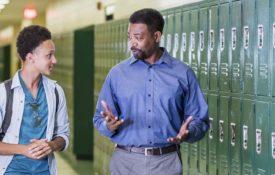-
The Marshmallow Test: Bunkum or a True Predictor of Future Success?
You know those times when you try to share a favorite movie, band, or restaurant with friends, and they just don’t get it? For mysterious reasons, you can’t refashion the moment for them as you experienced it originally. Where you found passion and insight and a life-changing creme brulee, they see just another meal served up by a sulky waiter. For more than a decade, psychology has been enduring the institutional version of this. It’s called the replication crisis because researchers have been unable to replicate the results of many well-cited studies. And that’s a problem.
-
They Died From Covid. Then the Online Attacks Started.
... Just as cellphones have changed American policing, social media has transformed the way Americans chronicle their lives and, increasingly, their demise. It has also resulted in many people leaving behind a trail of ideology that’s hard to untangle from their untimely deaths. And in a hyperpartisan culture plagued by “alternative facts” and debates over the most basic scientific realities of the pandemic, many among the vaccinated are eager to brandish such accounts as the final, indubitable proof that the Covid deniers and those who are anti-vaccine are dangerously misguided.
-
The Science of Visual Data Communication: What Works
Psychological Science in the Public Interest (Volume 22, Number 3)Read the Full Text (PDF, HTML) Data can be a powerful way to disseminate science and news, but creating effective data visualizations is both a science and an art. Just as well-designed figures can help viewers understand data patterns, poorly designed figures can create confusion and misunderstanding, undermining not only comprehension but also trust. In this issue of Psychological Science in the Public Interest (Volume 22, Issue 3), Steven L. Franconeri, Lace M. Padilla, Priti Shah, Jeffrey M.
-
They Say Suffering Will Make You Stronger—But It’s Not That Simple
Is suffering good for us? Does it make us better people, kinder and more resilient; does it give meaning to our lives? It would be nice if it did, particularly since so many of us have been suffering these days. Around three-quarters of a million Americans have died of Covid, and those who loved them often didn’t get to say goodbye or hold a proper funeral. Millions have lost their jobs or their businesses, millions have had their life projects put on hold or derailed. There have been those trapped together who hate each other and others who essentially lived in solitary confinement. Even the luckiest experienced boredom, anxiety, and dread.
-

Fostering Student–Teacher Connections Could Help Keep Students Returning From Juvenile Detention in School
Encouraging young people returning from juvenile detention to share their goals with an educator could help them stay in school and out of the criminal justice system.
-

Improving Compliance with National Science Foundation Project Reporting Requirements
Learn more about ensuring your NSF funded institution or project is complying with reporting requirements.

